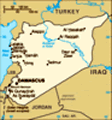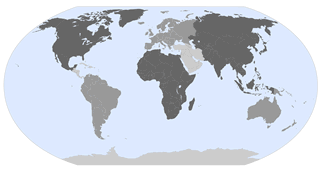Advertisement
Published: September 6th 2010
'I do not know any hotel with the name Zenab here in Aleppo', the customer says.
To get a visa I just gave him the name Zenab as our hotel where we would stay in Aleppo. Actually I also do not know a hotel with that name in Aleppo, but I do not know the name of any hotel whatsoever in Aleppo. So I came up with the first name which crossed my mind: Zenab after Zoenobia, once the queen of Palmyra.
'Are you sure it is in Aleppo?', the customer asks and I see a twinkle in his eye.
'Absolutely, but maybe I'm a bit wrong with the way of writing', I say, producing the same twinkle.
We understand eachother and we get a big stamp in our passports. Welcome in Syria, we see on the billboard while we pass the border.
Aleppo
It is the third time I am in Syria now and again it is a shock. The dirty roads, the noise of the traffic, the explosion of sounds, colours and flavours, which attacks all your senses. But I love Syria, its culture, its people, so friendly that you cannot understand why George Bush made it once
part of the axis of evil.
We settle down in hotel Dar Halabia, in the middle of the soukh. The soukh is like a soukh should be: narrow streets full of life, full of shops: butchers, all kinds of herbs, soaps, cloathes, not for tourists but for the locals. As if medieval times comes to life again. Not so strange maybe, because Allepo claims together with Damascus to be the oldest permanently inhabited city in the world. Old churches, mosques, the citadel and the pillar where St Simeon stood upon during 30 years: we have seen them already before. Now we come for my daughter Majorie and her friends Yahya, Bashiar, Kinda and Santiago. Why Santiago is called Santiago is not completely clear, because actually he is called Mohammed. He guides tourists and he is the one who will guide us across the country this week.
It is Ramadan and that why it is busier then normal. In the evening we go all together to a restaurant. The apetizers (meses) and the drinks are already on the tables. But everyone has to wait till the imam gives the sign. The waiter lays his ear against the window so he
can hear the prayer out of the loudspeakers. It is 7.10 pm sharp when the sign comes and everyone in the restaurant starts to eat.
Lake Assad
A 2 hour drive with a minibus brings us to Lake Assad. It is an artificial lake in the middle of the dry steppes. The Euphrate river feeds the lake. In the middle is an little Island (once just a hill) where you can go with a boat. We have the island for us alone. Around the lake are paddocks with cotton. The cotton is for the governement and is one of the main export products of the country, Santiago tells us. Santiago is a convinced muslim. So he follows the Ramadan. That means no eating and no drinking from sunrise till sunset. We try to follow it ourselves. We can wait with eating, but cannot do without water. Now the Ramadan is in the middle of an hot summer, it must be extremely tough for muslims. Santiago does not take a single drip of water during all day.
The Dead Cities
Serjilla and Al-Bara were once prosperous cities. They were important sites on the trade route between Antioch and Apamea.
(Apamea, once founded by Seleukos, looks like Palmyra, but is less charming). Now you find only some ruines. Why Serjilla and Al-Bara were deserted 1500 years ago is not clear. There are several theories, Santiago tells us. One theory says that the Christians who used to live here, made wine. On one of the ruined grapepresses we read the Greek text: " The juice of the grape you drink is similar to the one of Bacchus. When the Muslims took over, it was done with the wine, because alcohol is a taboo. According to another theory climat changed and the area became dryer, so that vinegards died out. There must have been water in the past, because one of the buildings was a cistern. Now it is completely dry.
Palmyra
Palmyra was situated on the crossroad of importants trade routes. Once queen Zoenobia lived here till she was captured by the Romans. Zoenobia was a beautiful woman and so is Palmyra. It is so beautiful, that it does not make sense to describe it. Just look at the pictures of the collonades in an orange coloured desert. For us the Temple of Baal is the most striking building. Baal
was the God of the pagans in the eyes of Mozes. Inside in what was once the holiest of holiest you can still see Baal himself on the ceiling, surrounded by the zodiac and by eagles. It is stunning how everything is still there, while we are in an area where earthquakes are common. Santiago points out the meaning of this all: the place where the vips of the past held their meals, the spot where the animals were slaughtered, the canals by which the blood of the animals was drained. It is a fascinating story.
Malula
'Shall a pray for you?' the guide asks. We stand in one of the oldest churches of the world: the St Gergius in Malula (founded in 325). We are not religious, but this time we agree. She prays in Aramean and Aramean is the language Jezus used to speake in. Malula is one of the few spots where people still can speak Aramean. Of course we do not understand a word of it, but Santiago recognizes some.
Malula is a special place. This is the spot where according to the Bible Thecla escaped to the Roman soldiers who were after her to
execute her. She was cornered by them against a cliff when she prayed to God and a lightning stuck the cliff so that she could escape through a narrow cleft. The cleft is still there, probably the result of an earthquake. We took the same route as Thecla once did.
Damascus
For me The Great Omayad Mosque in Damascus is one of the highlights of this trip in Syria. It started in the Roman time as a temple for Apollo, then it became a church in Byzantine time and now it is a mosque. The precious mosaiques of the Byzantine era are still there. It is one of the most beautifull mosaiques ever made. Inside is the tomb of Saladin, who fought against the crusaders and the head of John the Baptiser. It has the plan of a basilique and the N-S direction of a church, but the mithrab points to the East, to Mecca. Inside is a column for baptising. Santiago explains that it comes from Jordan and that it is full of marine fossils. It means that Jordan was once covered by sea. Indeed I see graptolitelike structures.
I like Damascus more then Aleppo. It is
cleaner, the streets are wider and the soukh is more touristic. Linda likes Aleppo more, because it is more original. Like Aleppo Damascus has a Christian area. Suddenly the veils and scarfs disappear. Around the Great Omayad is the muslim area. Here are the prayers out of the speakers the loudest. I like the complex songs, the broken voices of the singer are full of tension. But here it is for me too hard and since the loudspeakers are also broken, you hear more noise than prayer. I hardly can bear it. So I flee to the hotel to find some rest.
Mamusa
Not far from Damascus lies the Mamusa monastery in an isolated barren mountaineous landscape. Here we will spend our last night together with Majorie and Santiago. Father Paolo welcomes us. We try to find some silence but the monastery is overcrowded. Even families with children are around. When I try to meditate in the church a father with two kids comes in. The kids are quiet, but the father all the time warns his kids to be quiet, which is quite disturbing. Dinnertime is at 10 pm, but we eat earlier, together with the muslims, because
we also fasted more or less. (Apart from Majorie who came up the mountain with a rucksack full of candies). We have a beautiful view over the valley and at night we see a sky full of stars. Even the Milky Way is clear to see. The monastery has a nice library with books about christianity, islam, philosophy, psychology and politics, but not about science. It has the atmospere of the monastery in 'The name of the Rose' from Umberto Eco.
Women and men sleep apart. So Majorie and Linda slept on the roof under the sky and Santiago and I slept in the dormitorium. Next morning we head for Aleppo to the airport. We say goodbye to Santiago. We owe him a lot. When you ever need a guide in Syria ask for Santiago (e-mail: innovator86@hotmail.com or sheikh.muhammad86@gmail.com). And we say goodbye to my daughter Majorie. Probably we will not see eachother for one year.
Via Cairo we flew with Egypt Air to our next destination: Adis Ababa in Ethiopia.
Advertisement
Tot: 0.177s; Tpl: 0.012s; cc: 10; qc: 23; dbt: 0.1562s; 1; m:domysql w:travelblog (10.17.0.13); sld: 1;
; mem: 1.1mb














Majorie
non-member comment
Ja, die laatste nacht in Mar Musa. Midden in de woestijn, in een vreemd land als Syrie, voelde ik me toch even heel erg thuis. Geen van ons had op dat moment een huis, niet eens een hotel. Maar het voelde erg goed om even het vertrouwde gezelschap dicht bij te hebben, en ik besef me nu dat dat het enige is dat mij thuis kan laten voelen. Ik ben benieuwd wanneer, en vooral waar we elkaar weer zullen ontmoeten. Ik bljif jullie volgen!